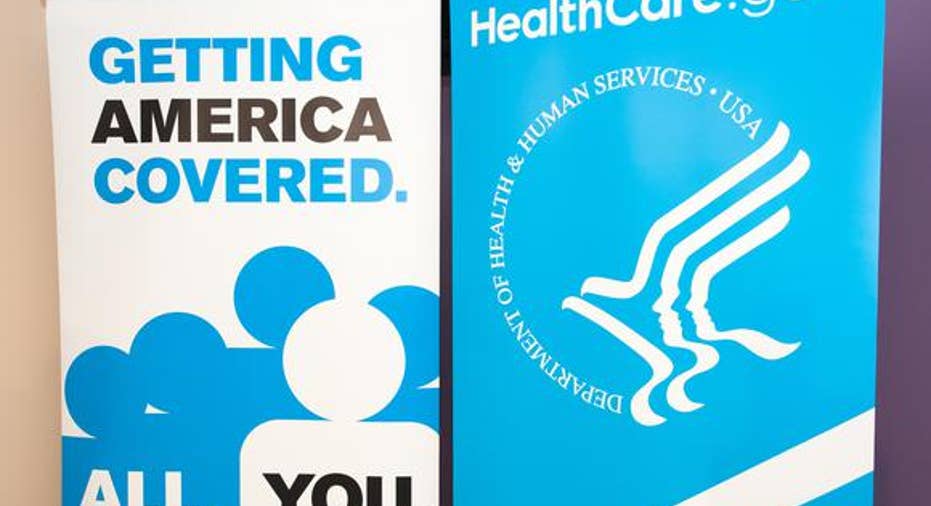Does UnitedHealth's Exit Deal Obamacare a Deathblow?

IMAGE SOURCE: FLICKR USER PICTURES OF MONEY.
On the heels of reporting that earnings per share surged 17% year over year to $1.81 in the first quarter, UnitedHealth Group announced plans to significantly reduce the number of states in which it offers health insurance plans through Obamacare. The decision is in keeping with previous reports that mounting losses could force management to walk away from the exchanges. While UnitedHealth's decision could be good for the company's bottom line next year, it's less certain what the impact of the nation's largest insurer abandoning Obamacare could have on the Affordable Care Act itself.
First, a little backgroundThe Affordable Care Act mandates health insurance coverage for most Americans and provides for a system of state health insurance exchanges through which insurers compete against one another for subscribers. The federally run Healthcare.gov exchange is used by 38 states and the remaining states run their own exchanges.
In March, the Department of Health and Human Services (HHS) reported that 12.7 million Americans enrolled in health insurance coverage through the Obamacare exchanges, including 9.6 million people who enrolled via Healthcare.gov. The HHS also reported that 20 million Americans have become newly insured since the Affordable Care Act's implementation.
The Obamacare exchanges began offering plans to consumers in 2013 for the 2014 coverage year and initially, UnitedHealth Group took a wait-and-see approach to participation. In year one, the company offered insurance plans to consumers in only four states. The following year, UnitedHealth substantially increased its presence to 23 states, and in the current enrollment year, the company's plans were made available in 34 states.
Despite significantly increasing its presence on the exchanges and enrolling, UnitedHealth Group has failed to turn a profit on Obamacare. Last year, management reported Obamacare losses in excess of $400 million, and in January, the company revealed that it expected to lose a whopping $500 million in 2016 because of the exchanges.
IMAGE SOURCE: DEPT. OF HEALTH AND HUMAN SERVICES.
A big headwindAlthough an estimated 795,000 people have signed up for health insurance through the exchanges with UnitedHealth Group, the company recently revised its estimate for losses tied to the program up to $650 million this year.
That may not seem like a staggering loss given that UnitedHealth reported $44.5 billion in revenue and nearly $3 billion in operating earnings last quarter, including the Obamacare headwind. However, when you dig a bit deeper, you see how that's a pretty big number for a low-margin industry such as this.
Of the company's $44 billion in first-quarter revenue, the vast majority of it -- roughly $36 billion -- came from premiums paid by Americans for their insurance. That premium revenue includes sales of insurance plans through employers, Medicare plans, and revenue generated by running state Medicaid programs.
After paying for the medical costs associated with its members and its other operating expenses, UnitedHealth's health insurance business contributed $1.9 billion to operating earnings in the first quarter. That's a pretty small amount of profit given the size of UnitedHealth's top line, and clearly a $650 million headwind is significant; especially considering that those losses aren't shrinking.
Bracing for the impactUnitedHealth Group's plans to cut losses by dropping plans in two dozen or more states could have big repercussions for Obamacare, particularly in rural markets where there are already few competitors.
According to research conducted by the Kaiser Family Foundation, an exit by UnitedHealth will result in Americans in many counties located throughout the U.S. having two or fewer insurers offering plans to choose from on the exchanges. If you add up all the people in those markets, then you end up with 1.8 million Obamacare members who will go from three insurers to two insurers and another 1.1 million people who will go from having two insurers to just one insurer. That's not a recipe for lower premiums.
Although it's not clear exactly how that change in competition will translate to premiums, industry watchers have said in the past that three or more insurers are needed to drive prices down. Therefore, it's not surprising to learn that when Kaiser crunched the numbers, it determined that if the company had not participated in roughly half of the counties where it offered one of the lowest-cost silver plans, the price of the benchmark silver plan would have cost up to $25 per month more for a 40-year-old. In the other half of those counties, the benchmark premium would have been $25 to $100 more per month without UnitedHealth.
Looking forwardUnitedHealth's competitors are also losing money on Obamacare exchange plans, but they're sticking with the exchanges in a bet that theirpayoff will ultimately make up for any losses they suffer now. Obviously, UnitedHealth isn't willing to make that bet, and if more insurers end up coming to the same conclusion, then Obamacare could end up operating an insurance marketplace with empty shelves or sky-high prices.
The article Does UnitedHealth's Exit Deal Obamacare a Deathblow? originally appeared on Fool.com.
Todd Campbell has no position in any stocks mentioned. Todd owns E.B. Capital Markets, LLC. E.B. Capital's clients may have positions in the companies mentioned. The Motley Fool recommends Anthem and UnitedHealth Group. Try any of our Foolish newsletter services free for 30 days. We Fools may not all hold the same opinions, but we all believe that considering a diverse range of insights makes us better investors. The Motley Fool has a disclosure policy.
Copyright 1995 - 2016 The Motley Fool, LLC. All rights reserved. The Motley Fool has a disclosure policy.



















